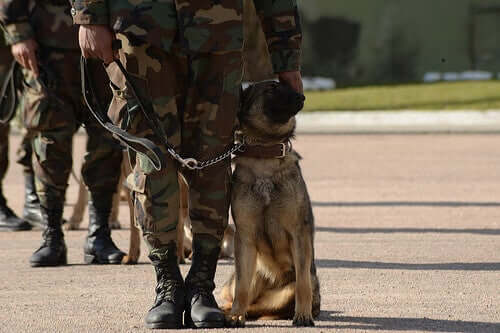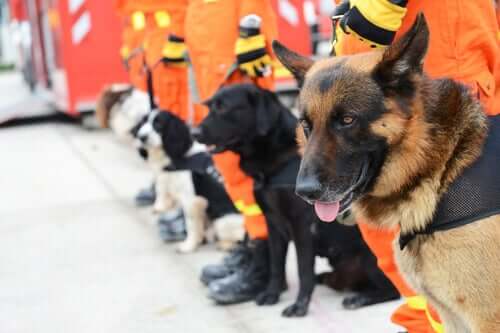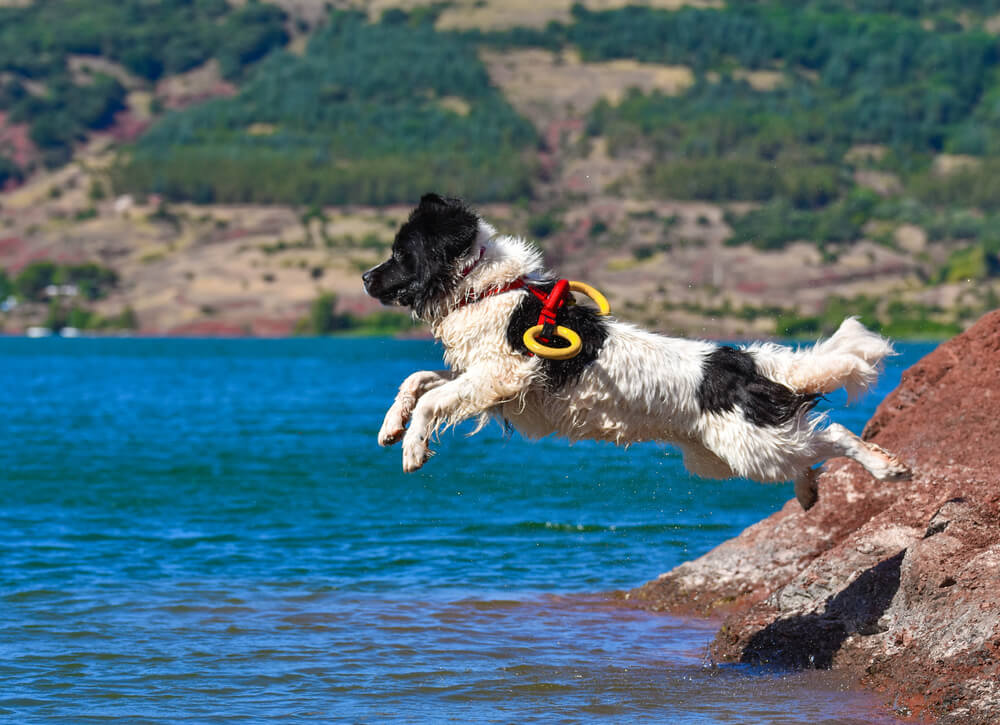The Best Types of Search and Rescue Dogs

Search and rescue dogs are well trained to carry out all sorts of tasks. Generally, the dogs selected for this job are usually members of strong, large breeds. Not only that, the most capable ones have a specific type of personality. That is, they must be animals of keen intelligence and intuition, highly versatile, and easy to train.
What are the best search and rescue dogs?
The best dog for this purpose is obedient, intuitive and temperamental; these are the main characteristics of this type of animal. There’s a great variety of dog breeds specialized in rescue, though. Generally, rescue teams need these animals to obtain better results in their line of work.
The animals selected are unique and have many virtues and qualities. Rescue dogs are animals of great temperament and high self-esteem, and they’re well suited for specific tasks.
So, the best breeds to be search and rescue dogs are:
- German Shepherds
- Malinois
- Tervuren
- Border Collies
- Labrador Retrievers
- Golden Retrievers
- Spaniels
These seven breeds have unique characteristics and make the best search and rescue dogs because their personality traits are difficult to match.
Characteristics of search and rescue dogs

Search and rescue dogs must be:
- Extremely attentive. They shouldn’t get distracted in order to be able to carry out their duties correctly. These types of animals are highly alert at all times.
- Self-confident. A dog that’s well-suited for this job must strive to give their best. In fact, they get pleasure from doing a good job. A dog that takes pride in itself is a guarantee of reliability when performing this kind of work. It is almost as if they know they’re born for it.
- Motivated. Rescue dogs have a great personality and often take the initiative in solving problems. These animals are highly autonomous and know just what they need to do on their own, which is vital for the type of work they do. This is great because there are many instances in which their guide won’t be around. A search and rescue dog must be highly creative.
- Persistent. Finding a lost person or animal is no simple task. Variables such as weather, location, and many other factors will often complicate a search. Thus, a united and determined team is required for these types of tasks. Rescue dogs seldom give up because they’re trained not to. So, they won’t stop until they accomplish their goal.
…and also
- Intense. Search and rescue animals must feel they’re after something that’s very important to them. This is so important when it comes to achieving their objectives. Thus, the commitment shown by this type of working dog is truly worthy of admiration.
- Energetic. Search and rescue dogs are high resistance animals. It’s thanks to this that they’re able to withstand adversities. They’re always full of energy.
- Sensitive. These animals have highly developed instincts and this increases their ability to react to all sorts of stimuli. The sensitivity of these animals is evident from an early age and it’s no wonder they always find the right track.
- Solid. The character of this type of animal is well-balanced and they have a particular way of processing the information. They are calm and observant, and it’s for this reason that working with them is so easy.
- These animals must be highly adaptable and flexible, as it allows them to face any external changes they might be exposed to. This is very important, especially when dealing with environmental changes.

Conclusion
The best rescue dogs should meet all the aforementioned characteristics. Ordinarily, someone will train them to perform difficult tasks. Therefore, these animals are highly reliable.
Every day there are more and more search and rescue teams who incorporate trained animals into their work. The good news is there are also more and more canine educators who specialize in this type of task. How wonderful it is to work with animals, undoubtedly a unique privilege.
Thanks for reading.
